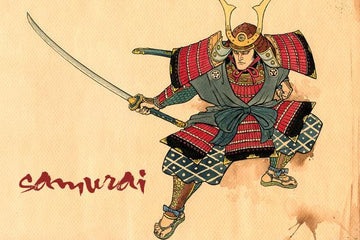Within the heart of every Japanese individual, the image of the Samurai stands as a steadfast symbol of loyalty, courage, and morality. These warriors were not merely skilled fighters but also icons of a historical era filled with power and influence. Spanning centuries, Samurai were not only formidable soldiers but also aristocrats, artists, and even philosophers. Let's embark on a journey through the history and culture of the Samurai - the legendary heroes of Japan.

Japanese samurai
Japanese samurai the 10th century, during the Heian period, Samurai began to emerge as true warriors under the central government. Initially hired to protect territories and fend off external invasions, their power and influence quickly grew as they became significant figures in Japanese politics and military affairs.
The Golden Era: Strength and Power
During the 12th and 13th centuries, the Kamakura and Muromachi periods witnessed the pinnacle of Samurai strength and authority. Through the ingenuity of samurai lords and divine intervention, they seized control and established dominant rule. Samurai became a noble class, holding control over land and creating a tightly stratified social hierarchy.
Tokugawa Shogunate: Era of Peace and Decline
In the 17th to 19th centuries, the Edo period, Samurai continued to maintain their power under the Tokugawa Shogunate. Under the Shogun's protection, Samurai lived in a stable and peaceful society, yet it was also a period of gradual decline. Japan's opening to the outside world led to divisions and ultimately the collapse of the feudal system.
Samurai in Modern Culture
While Samurai no longer exist in their traditional form, they live on in the minds of the Japanese people through art, culture, and tradition. Tales of legendary battles, loyalty to honor, and righteousness continue to inspire Japan's cultural heritage.
Conclusion: The Great Legacy of the Samurai
Samurai were not just skilled warriors but symbols of loyalty, patience, and moral spirit. They left behind a great legacy in Japan's history and culture, not merely as a part of the past but also as an eternal source of inspiration for the future.









